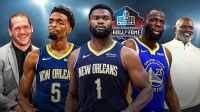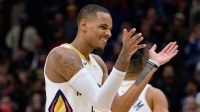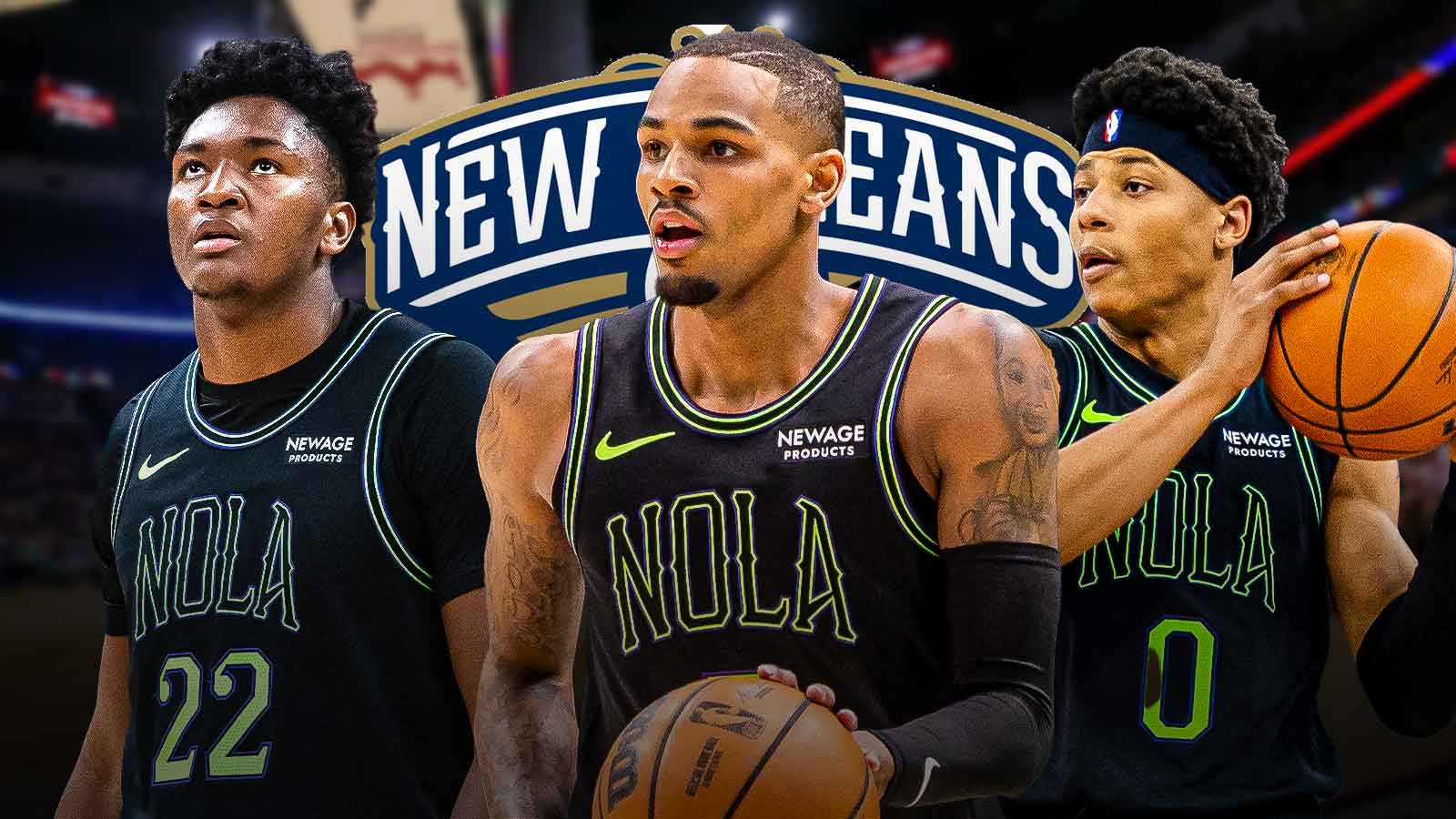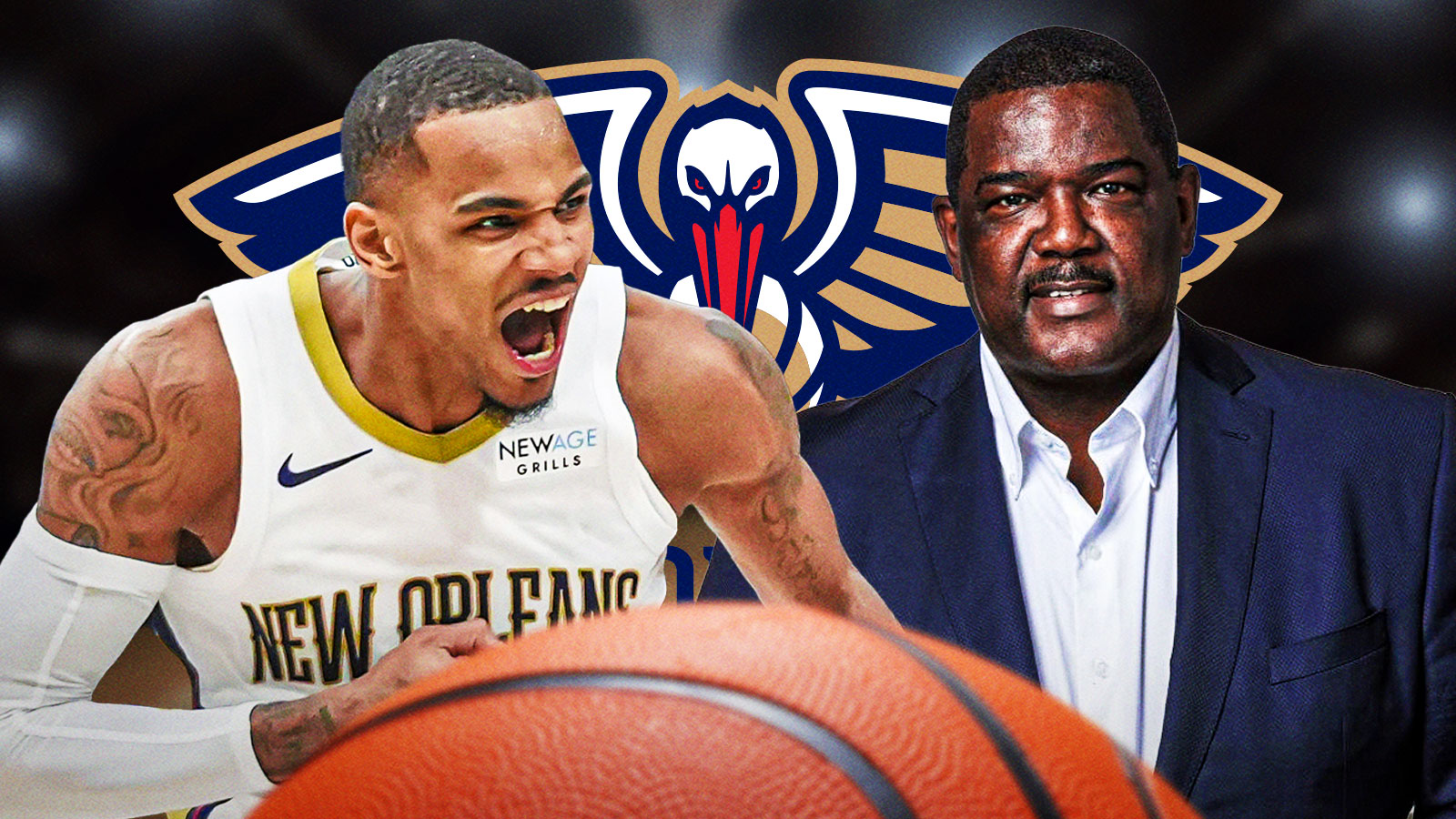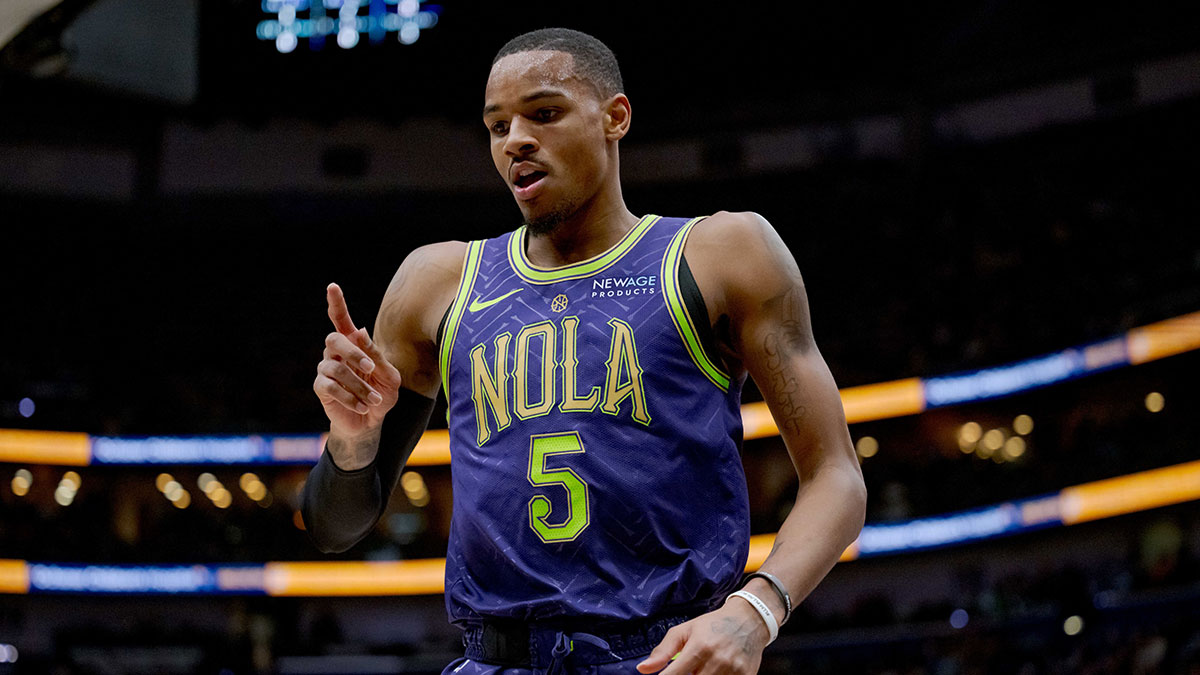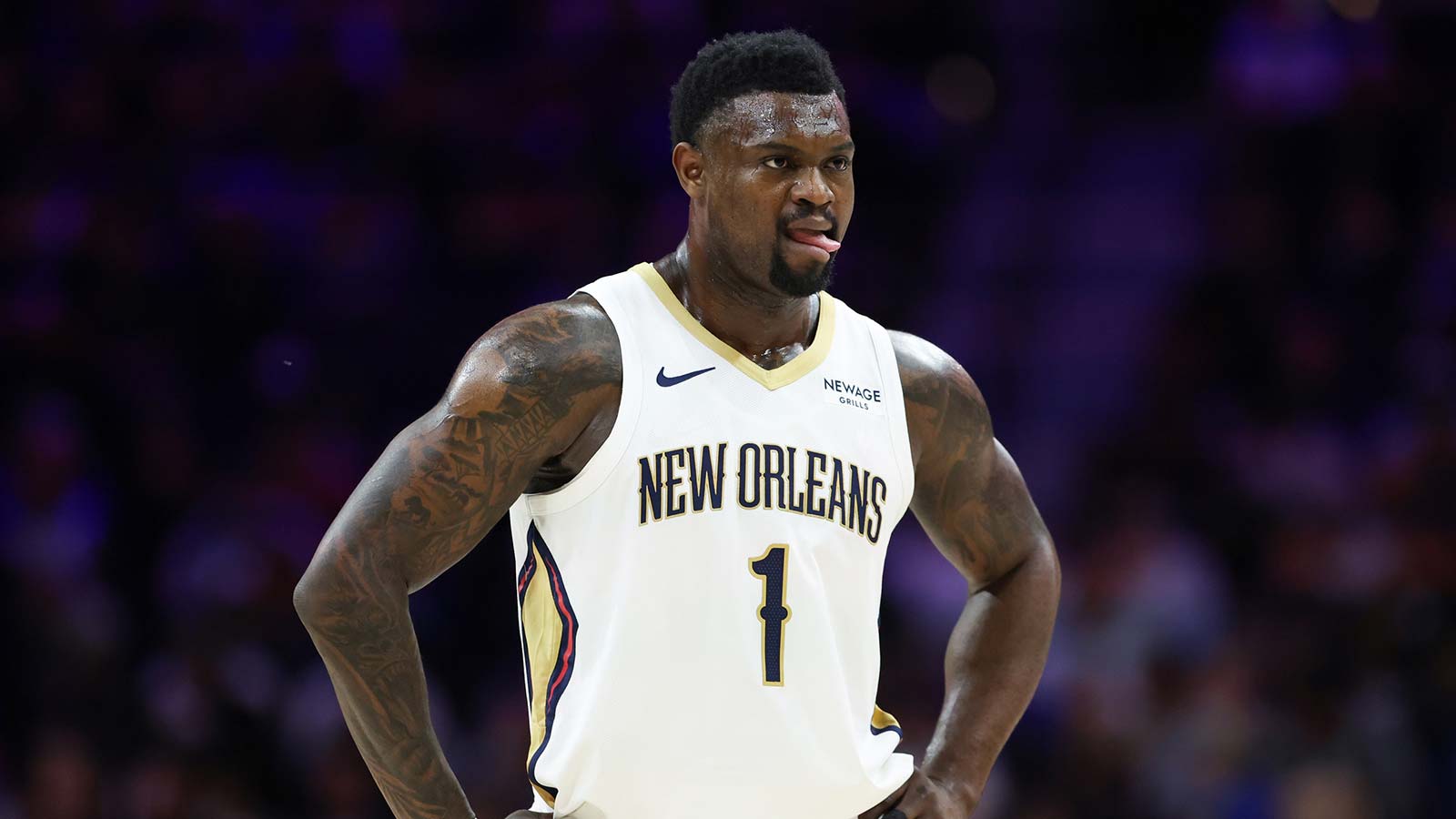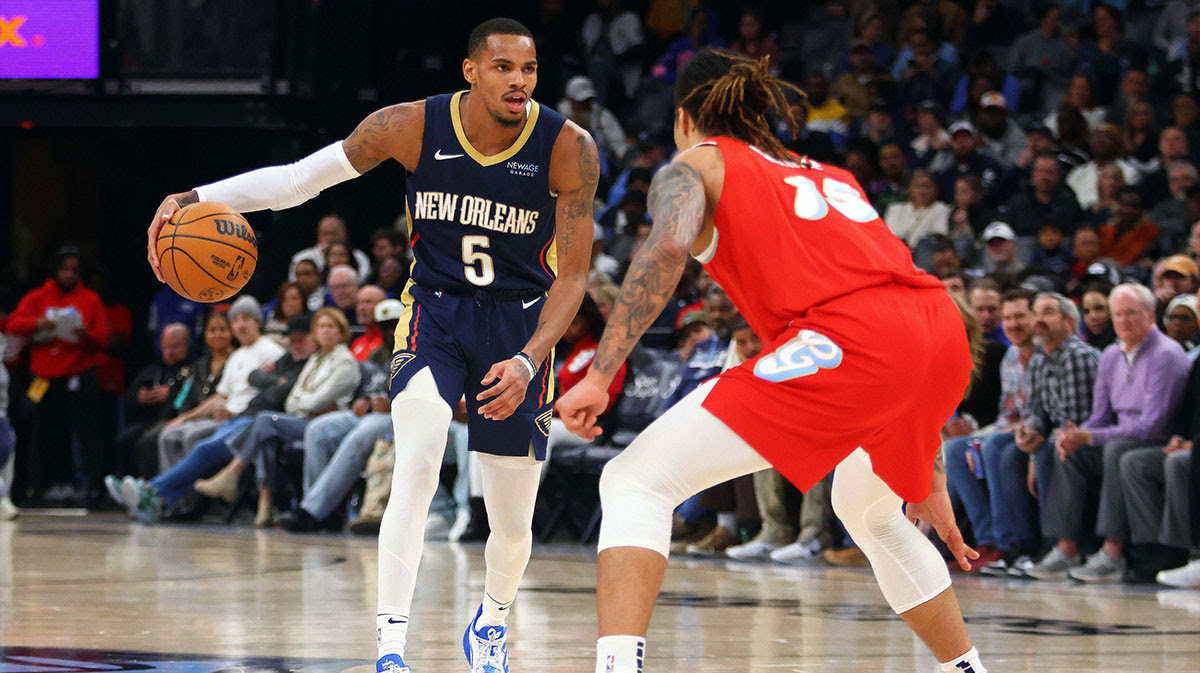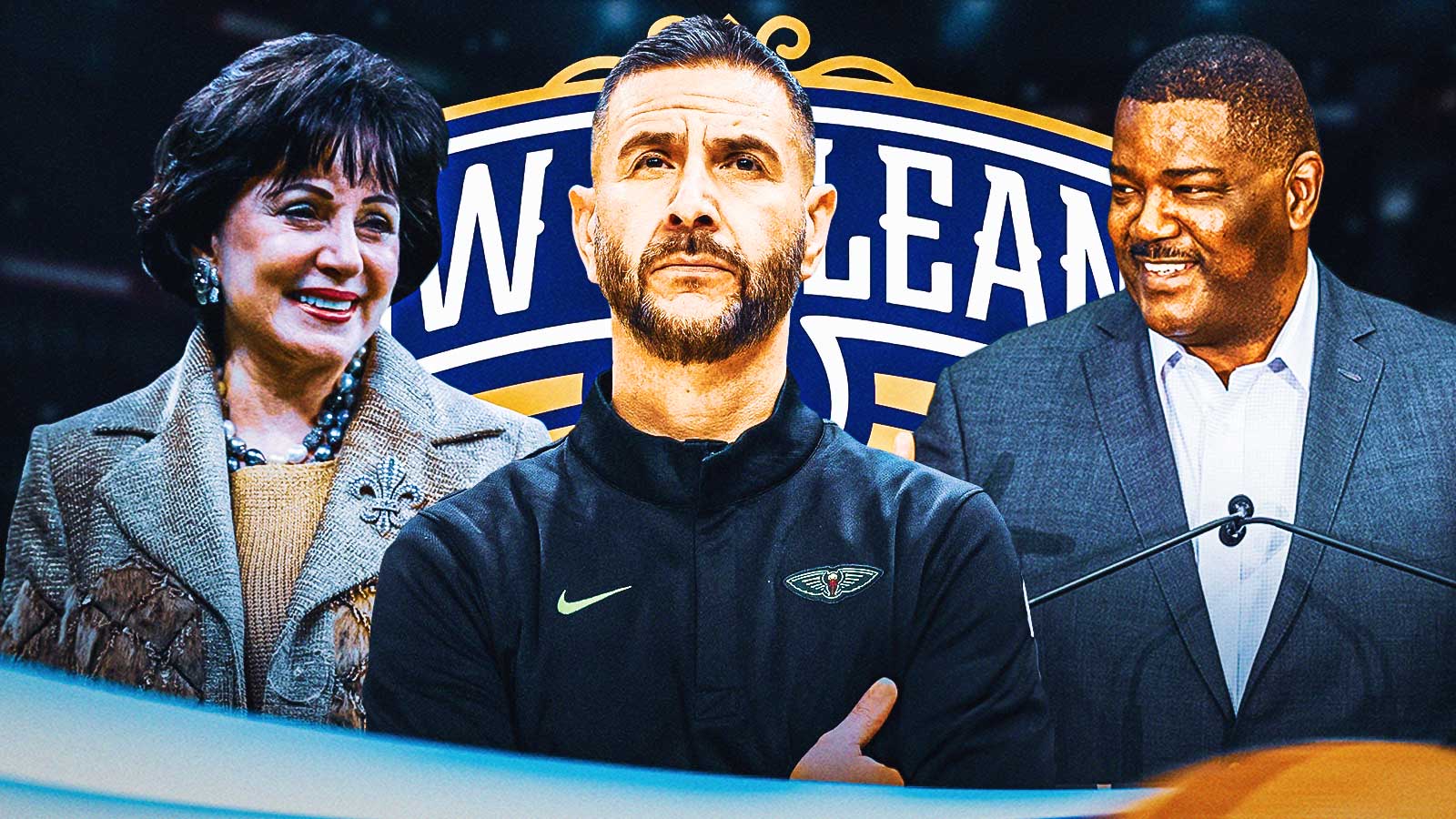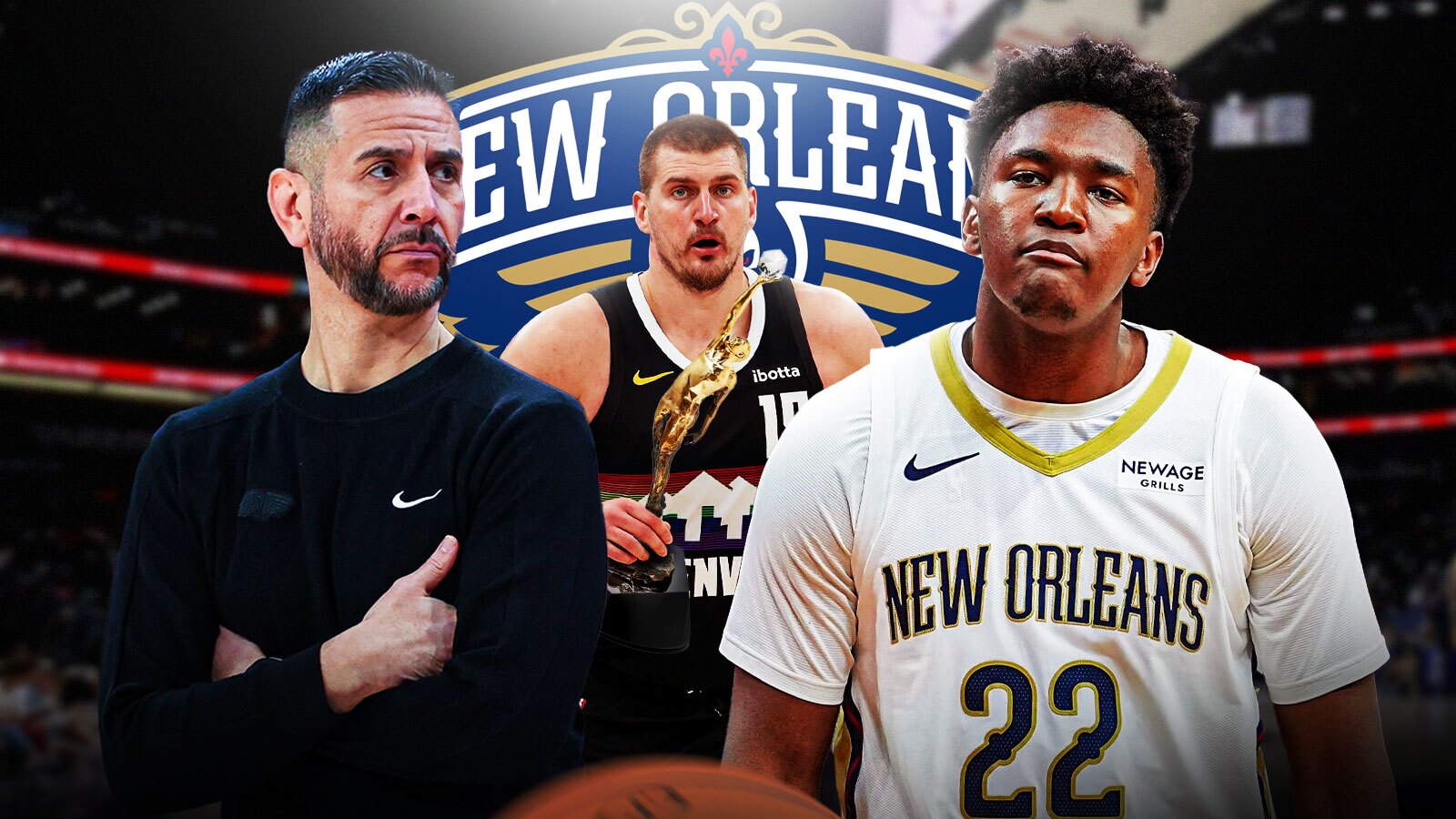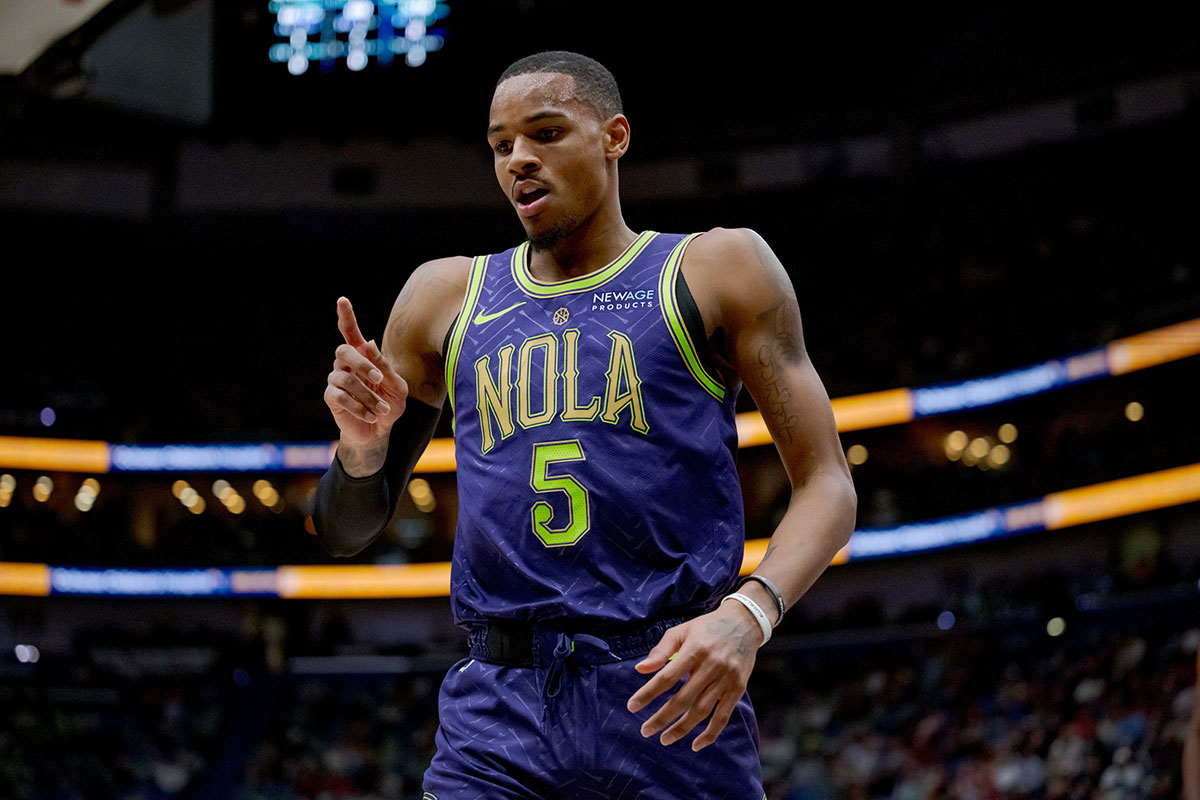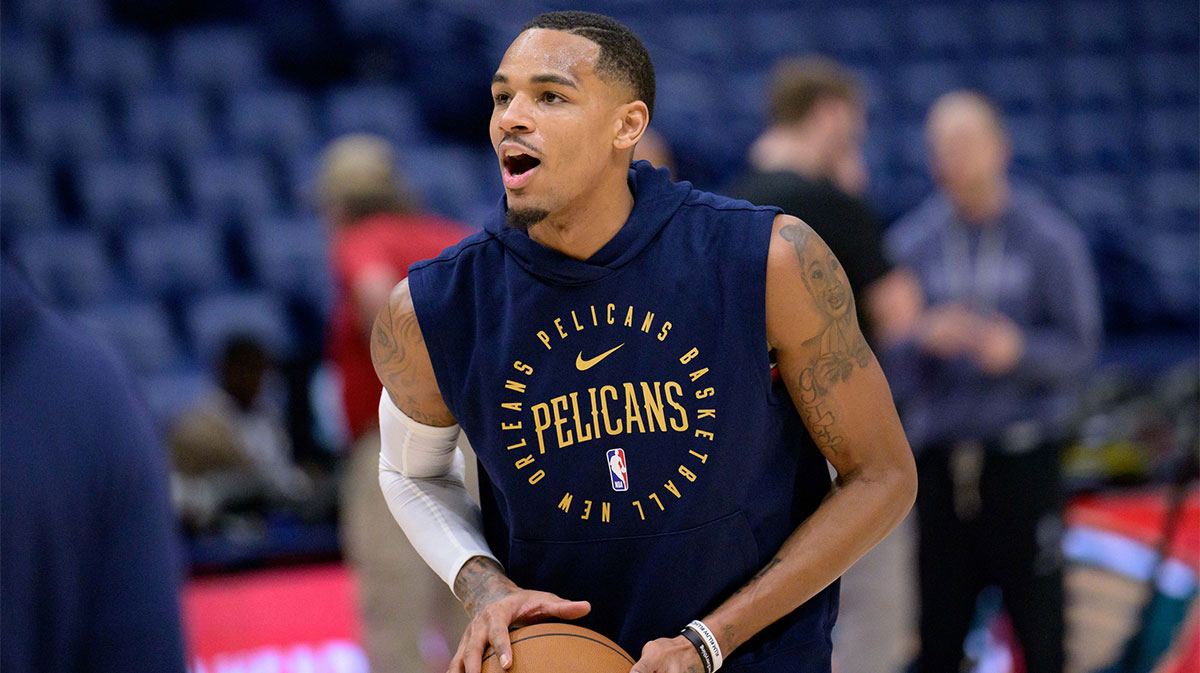Just one game into the 2025-26 season, Willie Green found himself addressing a painfully familiar narrative with resigned acceptance. The embattled New Orleans Pelicans coach, standing before reporters after Zion Williamson's squad was taunted by Ja Morant's Memphis Grizzlies, delivered the same message repeated throughout his tenure. It was expected since Kevon Looney, Karlo Matkovic, and Dejounte Murray were all on the injury report. Yves Missi (ankle) suffered an NBA Opening Night knock, adding more bad news to the Big Easy's basketball gumbo.
“Unfortunately, it's part of the game,” Green sighed. “Sometimes you deal with that as a team. The biggest thing you can do is be consistent as a leader.”
Green was speaking of himself, yet it also applies to the team's All-Star. Williamson (27 points, 9.5 rebounds, six assists, four steals) has been that, but sticking up for Jeremiah Fears will only go so far in the standings. These Pelicans need victories soon, especially after losing a very winnable home opener. Unfortunately, Williamson (left bone contusion) is now listed as questionable for the third game of the season (vs. Boston Celtics).
Green is sitting at 0-2 after that heartbreaking 120-116 overtime loss to the San Antonio Spurs in the Smoothie King Center. It's a disappointing beginning for a team that desperately needs to rebound from last year's catastrophic 21-61 campaign. Fans are finding it hard to stomach another season of the status quo which led to the second-worst record in franchise history. Giving Green credit for posting 49 wins just two seasons ago also comes with some significant qualifiers.
Willie Green giving same answers

This post-loss reply consistency has become both Green's defining characteristic and a point of contention for a franchise that has struggled to convert potential into sustained success. There are a few reasons the refrain has hardened into a habit though. New Orleans still needs Zion Williamson to be a steadying hand, for one. Another? Recurring third-quarter breakdowns are constantly addressed. Unfortunately, this leads to public frustrations and demands for more than rote reassurances over 82 games.
The opener against Morant's Grizzlies exposed a glaring weakness that has plagued Green's Pelicans for years. There is an alarming tendency to collapse in the third quarter. After building a 67-56 halftime lead, New Orleans was outscored by 19 points (41-22) over the next 12 minutes. The FedEx Forum crowd was all amped up for a crucial fourth. It was all but inevitable that a shorthanded New Orleans would not overcome the deficit.
“You do have to be able to try and make some adjustments along the way,” Green said. “That's just another part of it. The game, you know, sometimes it does not go exactly the way you want it to. When that happens, it's always about trying to communicate with your staff and players about the changes you might have to make.”
And that's why the seat is warming up, in case Green is wondering.
The most troubling aspect of this particular third-quarter collapse was the disappearing act of Jordan Poole in the offense after a strong start. Despite scoring 15 points in the first half, Poole went 0-for-4 in the third quarter and attempted just one shot in the fourth quarter. For a player acquired specifically for his offensive creation and clutch shooting, this lack of involvement in critical moments raises questions about Green's in-game offensive system and adjustment capabilities.
Explain the purpose behind Poole's shot diet in that third quarter. While injuries explain much of the Pelicans' recent struggles, a deeper examination reveals troubling patterns that have persisted throughout Green's four-year tenure. These are patterns that “consistency” hasn't been able to solve. Still, Joe Dumars with a mandate to search for stability rather than attempt any bold reinventions. It's why Willie Green and Zion Williamson are still calling New Orleans home.
Pelicans painting bleak picture
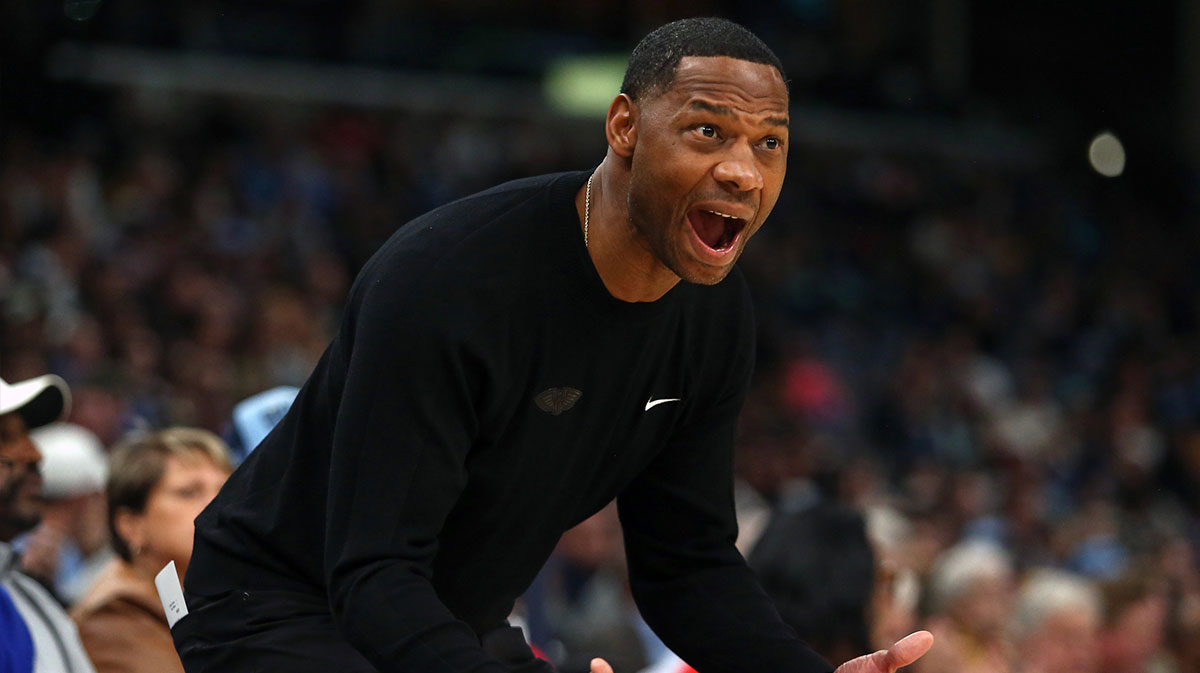
The numbers paint a grim picture of Green's teams in late-game situations. Not having Williamson for long stretches hurts, sure. Going 0-24 when trailing after three quarters and still finishing with 49 wins is an accomplishment. It also suggests there was a lot of untapped potential. Becoming the first team in NBA history to post a winning record while never recording a come-from-behind victory is a different kind of special.
In the 2023-24 season, the Pelicans were second-to-last in the league in free-throw percentage (69.6%) in the clutch, 24th in turnovers, and 28th in points scored. These aren't aberrations; they're systematic failures that have defined the Green era. Williamson missed the go-ahead free-throw against Victor Wembanyama's Spurs, so that voodoo is creeping into this season already. Again, untapped potential is showing up as defeats.
That conservative posture explains why Green’s default answer to injury disruptions is a call for consistency. A coach overseeing a rebuilding or retooling roster often chooses continuity over sweeping tactical experiments. Constant schematic churn risks confusing a young group and accelerating losing streaks. As Green said, “The biggest thing you can do is be consistent as a leader.”
The subtext: stability is the priority, even when results aren’t immediate. That’s a defensible position, even if it frustrates fans who want urgent change. Those fans are getting louder every game. Amid Green's unwavering calls for consistency are the critics arguing that an adherence to these principles has bordered on stubbornness.
Green's offensive system relies too much on isolation scoring, leading to stagnant possessions and low-percentage shots, especially during crunch time. His reluctance to play young players has also been frustrating. He continuously started center Daniel Theis, a career backup, before giving opportunities to youngsters like Yves Missi and Karlo Matkovic. Even when the team was clearly out of playoff contention last season, the Pelicans hesitated to experiment with rookies.
Rotations have been confusing, with this year being no different. Jose Alvarado's three meager minutes against the Spurs seem like a nod to the fans and nothing more. When the team is already low on wins and credibility, the immediate priority for a coach is damage control. Sadly, those specific, repeatable collapses make Green’s “we’ll adjust” language feel insufficient.
Those fans can rest assured; Green is now operating with a shorter leash. He is under pressure to deliver concrete, immediate countermeasures rather than the promise of incremental changes. In the end, Willie Green’s answers are both a reflection of circumstance and a strategic choice. How long that “part of the game” is tolerated depends on whether the adjustments the Pelicans promised fans this offseason are kept.
Stopping those third-quarter runs and turning the small-talk cliches into concrete, game-winning change must be the priority. If not, Green's season could fall apart before Thanksgiving Dinner is in the oven.
Zion Williamson's star waning
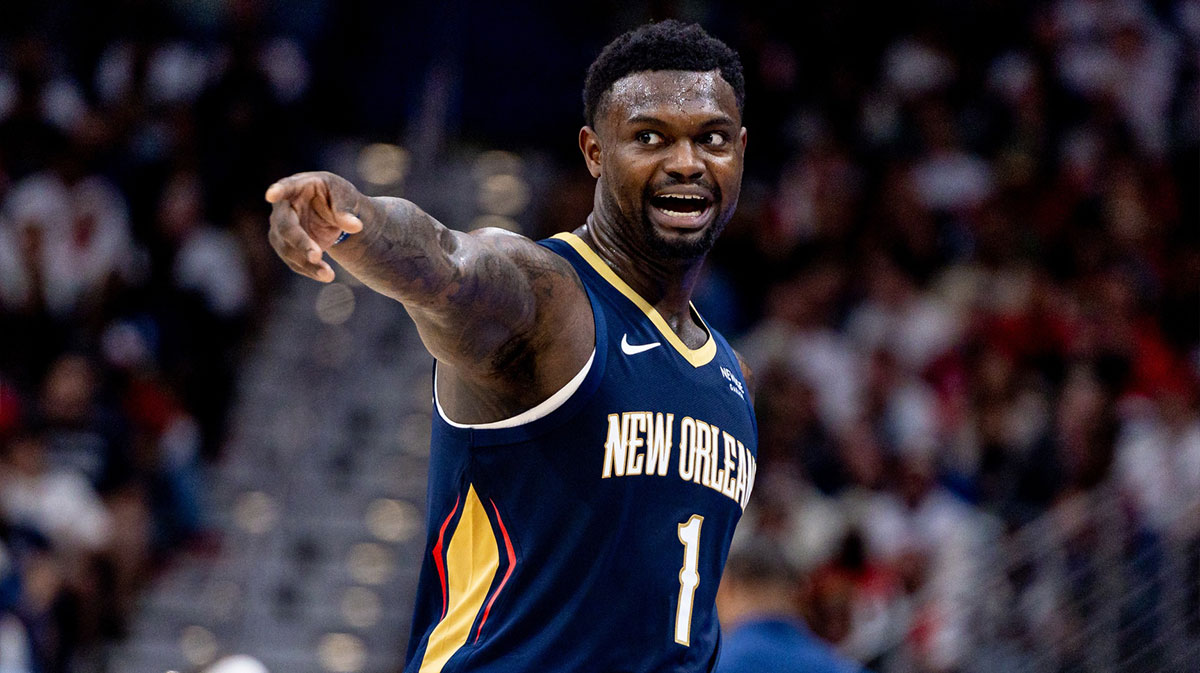
Against the Spurs, Zion Williamson had 27 points and 10 rebounds, showing flashes of dominance. But when it mattered most, the Pelicans couldn't execute. Green's emphasis on consistency as a leadership virtue is admirable in theory. In an NBA season spanning 82 games with inevitable peaks and valleys, a steady hand at the helm provides players with stability and clear expectations.
But leadership also requires adaptation. The best coaches in the league find ways to scheme their way out of deficits and adjust when their initial game plans falter. They don't simply preach consistency; they demonstrate tactical flexibility. Somehow, after four years, the complexity and flexibility of Green's tactics are all up for debate. Some are still seemingly undefined.
To be fair, Green had steadily improved the Pelicans before last season's injury apocalypse. He inherited a 31-win team and posted 36 wins in his debut season, then 42 wins, then 49—each campaign representing tangible progress. His strong rapport with players has never been questioned, and Green's ability to foster a positive locker-room culture stands as one of his greatest strengths.
The Pelicans hoped their offseason roster moves would pay off, adding Jordan Poole and welcoming back a healthy Zion Williamson. Williamson appears to be in the best shape he's been in since he was drafted in 2019, and Murphy and Herbert Jones are both fully healthy entering the season. Dejounte Murray is expected to return from his torn Achilles sometime after the calendar turns to 2026.
New Orleans is ready to support a winner and this core has the potential to approach the 49-33 record of two years ago. Well, it could if the same old problems were not already emerging. For now, the Pelicans continue to hear the same message from their head coach, the same emphasis on staying consistent through adversity.
Six of the next eight games are on the road, including trips to Denver, Los Angeles, Oklahoma City, and San Antonio. It's hard for a locker room to have championship-level confidence if they cannot trust a 20-point lead consistently. Whether they can do so with Green at the helm remains one of the franchise's most pressing questions.



